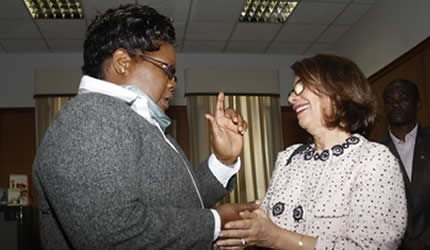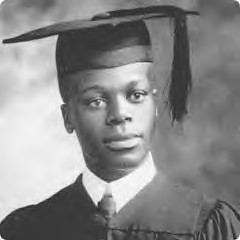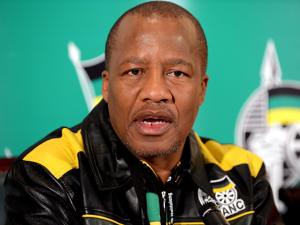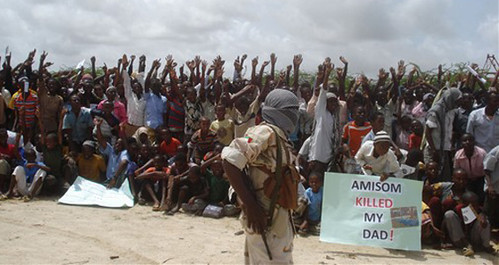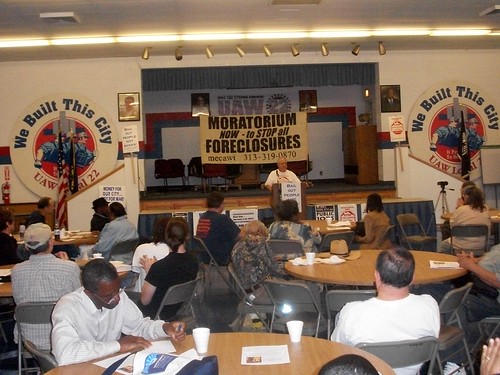Our World, the African Continent and Our Country
As we celebrate the Africa and International Solidarity Month and the 50th Anniversary of the OAU/AU, the many of our writers and scholars will focus on the historic perspective and others on the analysis of the successes and challenges still faced by our continent.
As South African's we need to continue to redefine ourselves. We need to continue to define our continental identity, reconnect ourselves as nation to fully embrace the fact that we are Africans first. Our country, South Africa is on the continent of Africa and what happens in our continent is bound and will continue to affect us.
In 2014 we will be celebrating the 20th Anniversary of our freedom and democracy from colonialism of a special type, apartheid and oppression. From being isolated for so long it will take as longer to rid ourselves of certain attitudes, and this has an impact on our outlook and our view on Africa and the world. We still remain a very Eurocentric society.
This reminds me of a poem by the late Ingoapele Madingoane; "Africa my beginning, Africa my ending", … "I was born there and will die there, in Africa my beginning and Africa my ending. Let us do something".
The poem was like a prophecy for us, indeed we must do something to change our attitudes. Former President, Comrade Thabo Mbeki in his famous speech in Parliament at the occasion of the adoption of the constitution said; "On an occasion, such as this, we should, perhaps, start from the beginning. So let me start, let me begin. I am an African".
He continued and said; "This thing that we have done today, in this small corner of a great continent that has contributed so decisively to the evolution of humanity. And that Africa reaffirms that she is continuing her rise from ashes, whatever setbacks, of the moment, nothing can stop us now! Whatever the difficulties, Africa shall be at peace!
However improbable it may sound to the skeptics, Africa will prosper! Whoever we may be, whatever our immediate interest, however much we carry as our baggage from the past, however much we have been caught by fashion of cynicism and loss of faith in the capacity of the people; let us err/or make mistakes and say - Nothing can stop us".
The passage from the speech of by former President Mbeki reminds the country and our people, how we all became Africans.
Everyone for weeks on end, black and white, went about proclaiming; that we are all Africans. But it soon evaporated. We soon retreated into our own cocoons, continued downplaying Africa, undermined ourselves as Africans, and looked down upon other African nationalities as sub-human. Why?
Africa needs South Africa and South Africa needs Africa and in fact we are part of the continent and we have no choice. We cannot choose otherwise geography and nature has determined our fate. But colonization has damaged our minds, not only as South Africans but it has also divided us into Franco, Luso-phone, the Anglophone and each think is superior to another. It is time that we transcend the imaginary divisions and unite as a people of the continent.
We are in Africa and we are Africans. I know I sound like a poet, but I must make this call to all South Africans to redefine and continue to redefine themselves, until the mind is decolonized, and in words and deeds we must become true Africans in our new journey to 2063 when we will celebrating the 100th anniversary of the decolonization of our continent, as a strong and prosperous people.
The point in case here was to demonstrate how as South Africans we forget who we are, to the detriment of our being Africans. We are first and foremost Africans of the South African origin. That is how we must continue to define ourselves. We are too much Eurocentric and to some extend tend to look or view Africa as another continent, hence the unfortunate the xenophobic tendencies which resulted with Africans foreign nationals being the victims. Our perspective outlook and view on Africa must change for the better. This is Our Africa, Our Continent and Our Pride.
The theme of the 50th Anniversary of the OAU/AU is; "2013: The Year of Pan Africanism and African Renaissance", and let us use this yearlong celebrations to know, understand and connect to Africa. Read about its history, know about the current developments and challenges, and seek for information. Contribute to its successes. Visit Africa, explore it, meet its people know languages spoken and understand our cultures, music, dance, traditions and customs in their diversities.
The ANC remains shocked at some of the criticism, the condemnations and discouraging sentiments expressed loudly after the killings of our gallant soldiers in the Central Africa Republic. Many only woke up that day, to the reality and knowledge that our soldiers were there since 2007. Without flinching we heard noises and screams that said; "What do you want there! We have no business to be in the Central Africa Republic.
"Our soldiers must come back home, let us only focus on our domestic problems" as many asked.
Some of the arguments were as a result of ignorance or lack of understanding our policies as South Africa, but some were legitimate and useful for which we welcomed their proposals. Our policy remains relevant, which that of; - Building a Better Africa and a Better World, to end conflicts, and for creation of peace, development and prosperity for our continent and the world as a whole.
We have resolved in every conference as the ANC that the role of South Africa will contribute to the ending of conflicts in the continent to bring about peace. That we will ensure Africa's development and prosperity.
Should we retreat from this noble goal of peace missions? We should not, but continue with the visionary ideals of our founding fathers of the ANC of those of the continent who had worked hard for the unity.
We also want remind our people that it is not the first time South Africa engaged in a bilateral mission in additions to other multilateral mission in peacekeeping, peace enforcing or conflict resolutions in the continent. We have succeeded in helping Burundi, to get peace. And today the people of that country have achieved the peace that evaded them for many years. Should South Africa have looked the other way - we would still be having Burundi in conflict.
We inhabit a world in which the balance of power and the global structures that give effect to it are undemocratic, inequitable and in many cases inimical to the interests of the developing world. However there are clear indications of movement away from a western-dominated, unipolar and hegemonic exercise of power towards an interest-driven world, with new centers of development and development and alternative growth models around emerging powers such as China, Russia, India and Brazil.
We also inhibit a world in which resource issues are gaining prominence as economic growth and population pressure impact on energy, food and water. Patterns of conflict are also changing, becoming increasingly asymmetrical and driven by issues of access to resources. And shifting demographic dynamics, migration and impact of particularly youth unemployment present our country with challenges. At the same time we inhabit a world in which the interest underpinning military-industry complexes retain their ability to shape the global agenda and wage war to further these interests.
The changing world in which we live presents opportunities for South Africa to become part of a realignment of international political and economic interests to better reflect the balance of needs and less the balance of military power. The canons of Pan-Africanism and South-South solidarity that inform our international posture and work position us to engage in this process. We therefore strive to democratize international institutions and strengthen a rules-oppressed, promote the African agenda in the global arena, and work towards peace, stability and development. In essence, what we wish for the citizens of our country is what we wish for the citizens of the world.
Our country is simultaneously an integral part of the African continent, a continent that is asserting itself increasingly on the global stage with a clear self-understanding of the African agenda. The agenda is based on the need for. Economic growth and development on the continent, economic integration at the regional and sub-regional levels, investment and trade, and democratization and good governance. To this end continental structures and mechanisms have been set up, including the including the African Union, structures of regional integration such as the South African Development Community (SADC), and the New Partnership development on the continent, and support conflict prevention, peace keeping and peace making, conflict resolution and post-conflict reconstruction.
We simultaneous oppose and seek to counter any colonialist and Neo-colonialist agendas from abroad, as well as exploitative and rapacious agenda that strip the continent of its resources or seek to control them to the detriment of our people. South Africa is a sovereign, democratic, constitutional and developmental state seeking to ensure a better life for its people, bridge and heal the divides in our society, address a historical legacy of oppression and injustice, and build a national democratic society. In the short period since the advent of democracy in our country we have made strides.
Creating a constitutional democracy and embedding the structures of the state. Government programs focusing on reconstruction and development have borne fruit, and our democracy is maturing. The state strives to mobiles and marshal our resources as a country to ensure economic growth, develop and uplift our people, ensure freedom from want and fear, strengthen social cohesion, and create a shed national identity and sense of patriotism.
We have a two-fold approach to defining the National Interest. Firstly, we take as a departure point that the development and upliftment of our citizens forms the bases of the National Interest. We see the interests of our people at the core of our Constitution and a people-centred approach therefore informs our work as a state. We emphasize human development and human security within and beyond our borders. Therefore our National Interest are informed by a people-driven perspective that prioritize and promoting the human rights of our citizens, enabling them to leave free from fear and want, and eradicating poverty, in other word building a society in which every citizen has access to adequate shelter, healthcare, education, security, work and opportunities to generate an income.
Our second departure point is the fact that our democratic state has inherited a society shaped by the legacy of apartheid, a legacy that will remain with us for a long time to come. This legacy presents a set of challenges that shaped the present and future of our country. South Africa's transformation into a democratic state was informed by the liberation struggles of the latter half of the 20th century, and this collective experience informs how we understand and define our National Interest.
We can say therefore that the National Interest:
Reflect the long-term goals, values and aspirations of our people.
Provides the ongoing purpose we see ourselves serving.
Provides strategic direction to policy makers.
Provides consistency to policy.
In order to ensure a development of our people, protect our planet and ensure prosperity, we strive to eradicate poverty, because it is a source of instability, resolve conflicts through dialogue and negation, rather than through war, defend our freedom, the hard-won rights we have gained, and the institutions we have created we have created globalize these rights and freedoms wherever and whenever possible, and promote the belief that the future of the world is based on the shared destiny of all peoples.
Against this background, we define the core of South Africa's National Interest as consisting of firstly the unity and integrity of our people, secondly the sovereignty and integrity of our state, and thirdly the growth and development of our economy.
The following are the six principles defines the South Africa's National Interest:
The development and upliftment of the South African people.
The stability of the Republic, it's constitutional order and it's institutions.
The sustainable growth and development of the South African economy.
The development of the South African region. (SADC).
A stable African continent enabling peace and development.
Creation of a just and equitable world order.
These six principles of our National Interest requires that we do the following:
The development and upliftment of the South African People.
Protecting and promoting the human rights of South Africans.
Strengthening the fight against poverty and inequality to ensure basic human dignity and opportunities for a life free from fear and want.
Strengthening efforts to combat crime and corruption to ensure the safety of the South African people.
Building human capital and capabilities to improve the country's human resource and skill base.
Improving public services to address the legacy of the past, meet basic needs, development human resources and build the economy.
Any debate on the national interests should be guided therefore by this principle. Pixley Ka Seme, predicted in his famous article called the Regeneration of Africa on 5th April 1906 and said; "Ladies and Gentlemen, the day of great exploring expeditions in Africa is over".
From being known as a dark continent as pronounced by world leading economist and today, they now pronounce differently, and say; "Africa is Rising"; as was predicted by Ka Seme in 1906. He said; "The African already recognizes his/her anomalous position and desires change. The brighter today is rising upon Africa".
Ka Seme, continues, and praises Africa as follows:
Oh Africa!
Like great century plant that shall bloom.
In ages hence we watch thee in our dream.
See in thy swamps the prosperous of our strength.
Thy doors unlocked, where knowledge lies in her tomb.
Hath lain innumerable years in gloom.
Then shall thou walking with that morning gleam.
Shine as thy sister lands with equal being.
In a recent interview at the World Economic World - Africa held in Cape Town the President of the ANC and the Republic of South Africa said; "In 50 years we would like to see an Africa that is connected totally, an Africa that is economically viable. An Africa that would be at peace with itself, where there will not be a single area of conflict. We want to be an Africa that is able to use its own resources to develop itself and trade with the world as an equal level.
That is My Africa, Your Africa. That is Pixely Ka Seme's Africa that is Kwame Nkrumah's, Julius Nyerere's, Thabo Mbeki's, Jacob Zuma's Africa. It is Ingoapele Madingoane's Africa as penned in his poem. Africa my beginning, Africa my ending.
Rise! Africa - Rise!
--Obed Bapela is an ANC NEC member and Chairperson of the ANC NEC International Relations Subcommittee.

